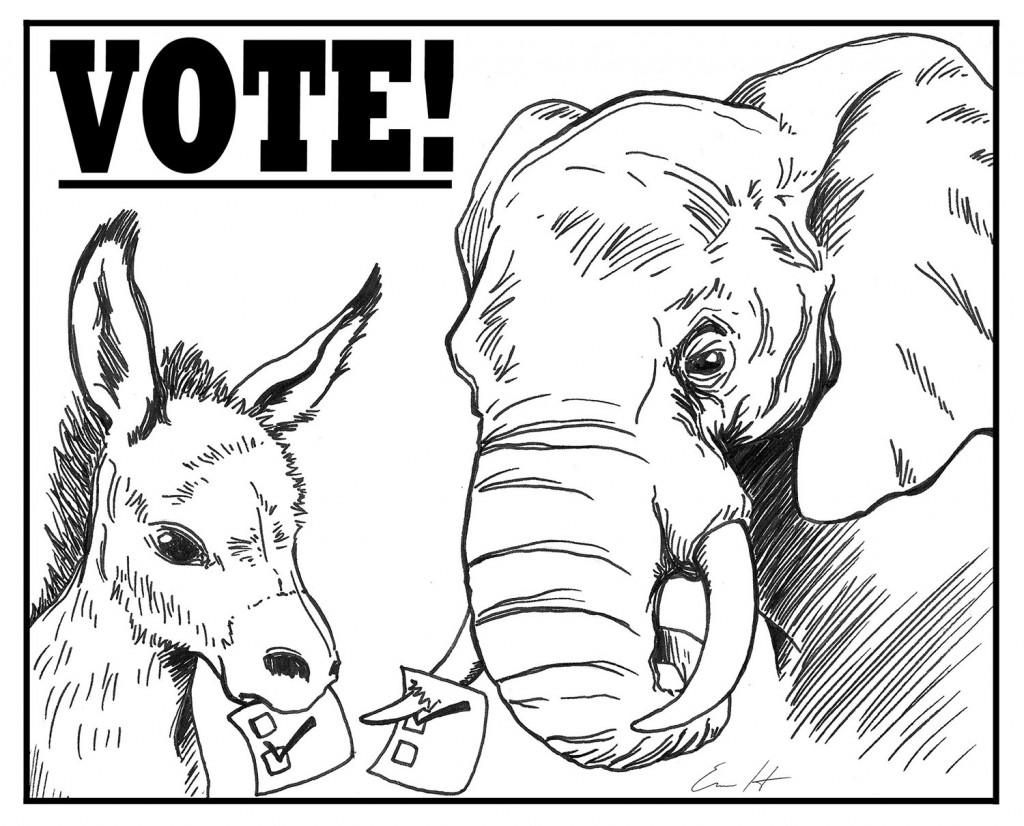By Karen Gavis/managing editor
While studying may be a noble option for earning an “A” in class, some students say other creative strategies help make the grade.
NE student Elizabeth Teinert thinks playing the stupid card helps a little, she said.
“If you’re going to suck up, you need to be prepared,” she said. “Like play the stupid card, but don’t be stupid.”

Photo illustration by David Reid/The Collegian
Teinert explained the strategy as simply acting like you don’t know exactly what to do. She said the tactic was easier to employ in high school, but at TCC, things are a bit more impersonal.
NE student John Teixeira had a rather creative strategy as well.
“I used to, like, kind of flirt with one of my English teachers,” he said. “I would ask her certain stuff to try to show an interest.”
Both students agreed that they thought just hanging around, talking and asking questions after class help students earn a better grade.
SE math assistant professor Brunilda Santiago said she would rather students focus on what is planned in the course for credit.
“Even before the semester starts, students ask about extra credit,” she said.
While one NE instructor declined to answer any questions, the class syllabus was clear.
“You have every opportunity to study, ask questions, participate, do extra credit and do your best on the exams,” it read. “Do not ask me for something you can do to raise your grade above or beyond the same opportunities given to each and every student.”
NE student Amanda Hughes said being nice definitely helps students get better grades, but so does sucking up.
“You know, you suck up to teachers all the time,” she said. “You, like, pretend you are listening, but most of the time you are.”
Hughes said she had a friend who passed a class once who did nothing but flirt.
“It worked for her,” she said. “She passed the whole entire class just by showing up, smiling and looking pretty.”
NE biology professor Keith Byrd’s class syllabus says that one resource students have that can improve their odds of success is just come to class.
“Read your book,” he said. “You paid good money for it, make it work for you.”
Byrd’s students do not have to worry about landing on his bad list. He does not have one, he said. And students’ use of creative tactics [like sucking up] would not make a difference, Byrd said.
“It will not affect their class grade,” he said.
However, Byrd said he did change his grading scale once because he had a student who tried hard and did everything possible like reading the textbook and never missing a class yet was still a few points away from passing the course. Essentially, another student who had not tried as hard may have benefited a few points, but, overall, being a good student helped, Byrd said.
Byrd has additional tips to help students succeed.
“You’ve probably heard it before, but you want to spend two hours studying for every one hour you spend in class,” he said. “Shoot for an A because if you just shoot for a C and fall short, you are in trouble.”
SE government instructor Darrell Castillo said while students do employ the strategy, they are not obsequious about it, and he can tell when he is being “buttered up” as he prefers to call it.
“I wouldn’t call it sucking up,” he said.
Castillo, who once worked in the Reagan administration, said TCC teaches students in success seminars to get to know their professors, go by their offices and other strategies like that. He thinks those help prepare students for the real world.
“Who can deny that a little brown-nosing doesn’t help you along your career path, and who hasn’t done a little brown-nosing?” he said. “When I was on the White House staff, that’s all I did all day everyday.”


























